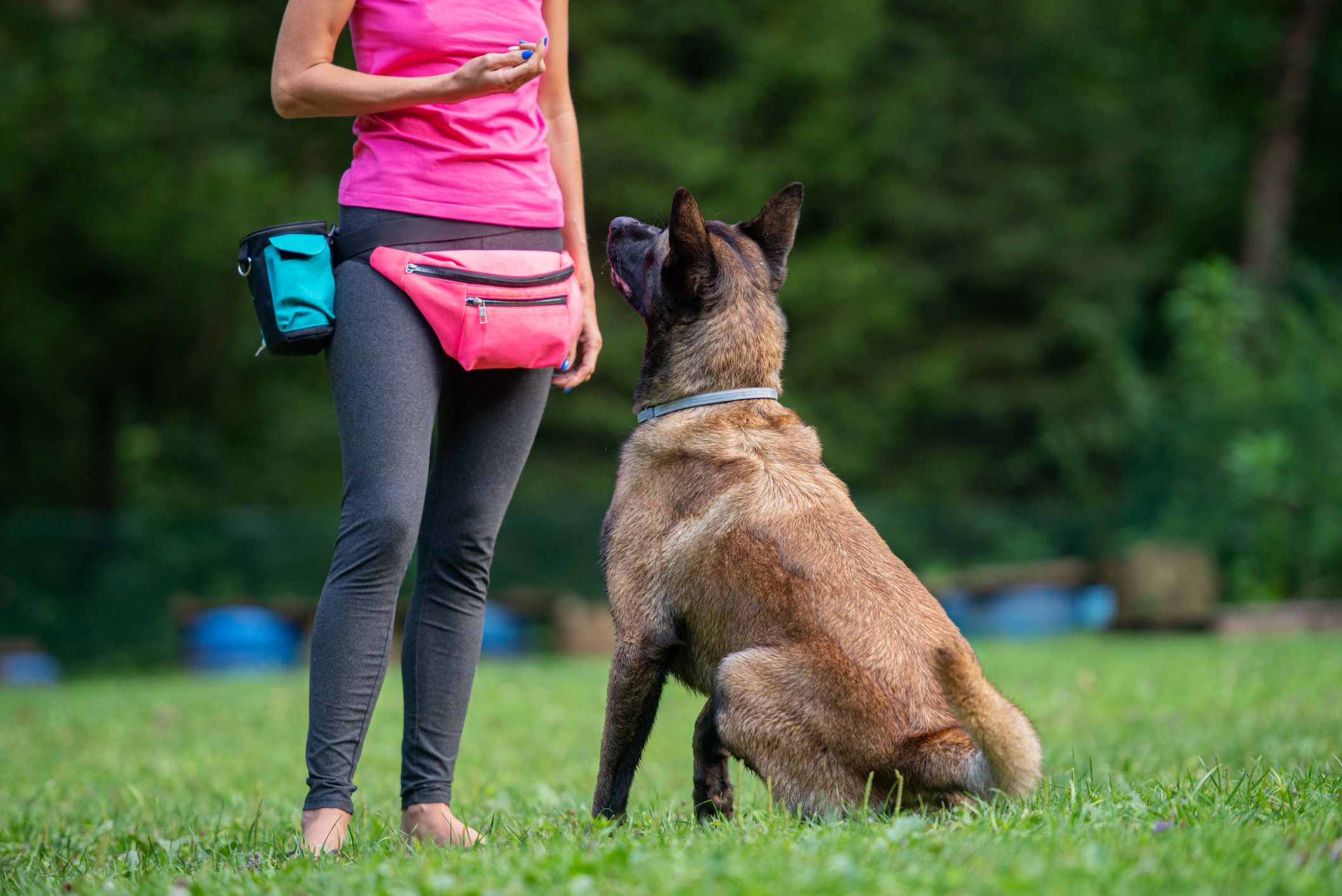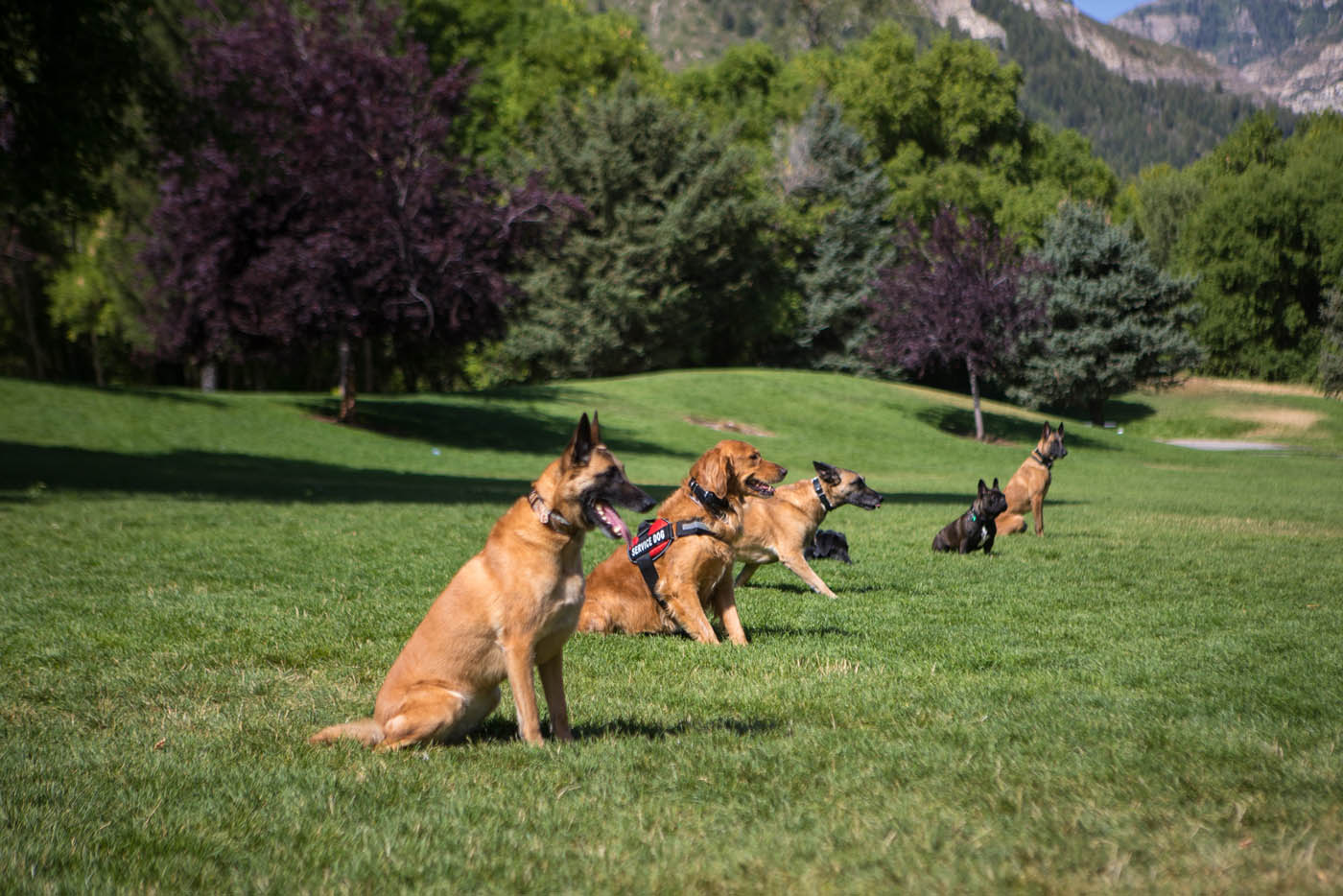Essential Tips for Successful Dog Training: A Guide for Beginners
Wiki Article
Unlock Your Pet's Potential With Specialist Training Insights
Professional training insights expose that acknowledging communication cues and employing consistent, positive reinforcement can considerably change your pet dog's feedback to different situations. As we explore efficient socialization methods and progressed training approaches, one might question exactly how these strategies can transform not just your pet dog's habits, yet also your overall relationship.Recognizing Your Pet's Behavior

Additionally, understanding typical behavior concerns such as hostility, stress and anxiety, or too much barking can help proprietors address troubles proactively. Rather of penalizing unfavorable actions, it is more effective to determine the underlying reasons and job towards modifying those triggers. A pet dog that barks excessively may be looking for interest or reacting to ecological stimulations.
In addition, each dog is distinct, influenced by aspects such as type, age, and past experiences. As a result, observing and recognizing your pet's specific behavior is essential to establishing a training technique that lines up with their personality. By promoting this understanding, owners can produce an extra unified living setting, improve their pet dog's discovering experience, and eventually strengthen their bond.
The Significance of Consistency
Preserving uniformity in training is essential for achieving preferred results and enhancing positive behaviors in dogs. When training sessions adhere to a foreseeable framework, canines are more probable to comprehend what is expected of them. This clarity fosters a feeling of protection and helps to develop a solid bond between the trainer and the canine.Inconsistent signs or commands can puzzle dogs, causing stress for both the animal and the handler. The pet may become uncertain about exactly how to respond if a command is in some cases rewarded and other times neglected. This disparity not only interferes with the discovering procedure yet can likewise inadvertently motivate undesirable habits.
Moreover, consistency prolongs beyond spoken commands to include body movement and tone. Canines are very attuned to human behavior, and disparities can undermine their trust fund. For efficient training, all member of the family and trainers ought to be aligned in their technique, using the exact same commands and reinforcement approaches.
Ultimately, consistency in training advertises an organized learning environment, allowing pets to prosper and react favorably to commands. This foundational principle is crucial for developing well-behaved, confident, and obedient companions.
Methods for Reliable Training
Effective training techniques build upon the foundation of consistency established in previous sessions. Utilizing favorable reinforcement is just one of the most efficient approaches for motivating preferred behaviors. This involves gratifying your canine with deals with, appreciation, or playtime right away after they execute the preferred action, therefore producing a strong association between the behavior and its positive outcome.Timing is essential; rewards should be given promptly to enhance the link. In addition, making use of constant and clear commands will help your dog recognize what is anticipated of them. Select easy, distinct signs and stay clear of making use of several phrases for the very same activity.
Integrating short, interesting training sessions can click to read likewise improve retention and prevent monotony. Go for sessions lasting 5 to 10 mins, gradually increasing the duration as your dog becomes extra skilled. Moreover, varying the training environment can help generalise learned actions, ensuring your dog can execute commands in various contexts.
Last but not least, persistence is important. Every dog discovers at their very own speed, and encouragement cultivates a positive discovering experience. By applying these methods consistently, you can open your dog's full possibility and enhance the bond in between you and your canine companion.
Socialization and Its Advantages
Socialization is an essential facet of a pet dog's development, dramatically influencing their actions and temperament. It includes the process of revealing a dog to a selection of individuals, environments, seems, and various other pets. This exposure aids dogs discover to browse the complexities of their surroundings, promoting self-confidence and adaptability.Appropriate socializing decreases the possibility of fear-based habits and aggressiveness, which can occur from strange scenarios. A well-socialized dog is much more most likely to show favorable communications with both humans and other animals, resulting in a much more delightful experience for everyone involved (Dog training). Additionally, socializing plays a vital function in boosting a dog's total lifestyle, allowing them to participate in tasks and getaways without too much anxiousness.
The essential period for socializing happens in between 3 and twelve weeks of age, although recurring socializing is useful throughout a dog's life. Engaging in monitored playdates, pup courses, and progressive exposure to brand-new experiences can promote this process. By prioritizing socializing, pet dog proprietors can grow an all-round companion, equipped to handle numerous circumstances with poise and calmness, inevitably causing a harmonious partnership in between the pet and its atmosphere.
Advanced Training Methods
A well-socialized pet is better prepared to engage in innovative training techniques, which can further improve their skills and Home Page boost their general behavior. Advanced training techniques, such as clicker training, scent, and dexterity job, require a solid foundation of fundamental obedience and social skills. These approaches concentrate on developing a pet's cognitive abilities, boosting their focus, and a fantastic read cultivating a deeper bond between the pet and handler.Clicker training employs positive reinforcement to shape desired habits, permitting for precise communication and quicker learning. This technique is particularly efficient in advanced jobs where accuracy is vital. Agility training tests pet dogs both literally and mentally, promoting control, self-confidence, and problem-solving skills. This can be an exciting way for dogs to shed off energy while improving their responsiveness to commands.
Scent job take advantage of a pet dog's all-natural instincts, enhancing their olfactory abilities while constructing their focus and patience. Incorporating these sophisticated training methods not only boosts a pet's mind yet also contributes to their emotional health. Ultimately, participating in advanced training can transform a well-socialized canine right into an all-around buddy, capable of navigating complicated settings with convenience and confidence.
Final Thought
In conclusion, unlocking a pet's capacity through specialist training requires a thorough understanding of actions, uniformity in approaches, and reliable socialization strategies. By focusing on these elements, an all-round and meeting connection between dog and proprietor can be developed, inevitably leading to a harmonious conjunction and a mannerly companion.As we check out efficient socializing methods and progressed training techniques, one may wonder how these approaches can change not just your pet dog's habits, however additionally your general relationship.
By focusing on socializing, dog proprietors can cultivate a well-shaped friend, outfitted to handle numerous circumstances with grace and calmness, inevitably leading to a harmonious relationship between the canine and its atmosphere. (Dog training)
A well-socialized pet dog is much better prepared to involve in sophisticated training methods, which can further refine their skills and improve their general habits. These techniques focus on establishing a dog's cognitive capabilities, boosting their focus, and cultivating a much deeper bond between the canine and handler.

Report this wiki page